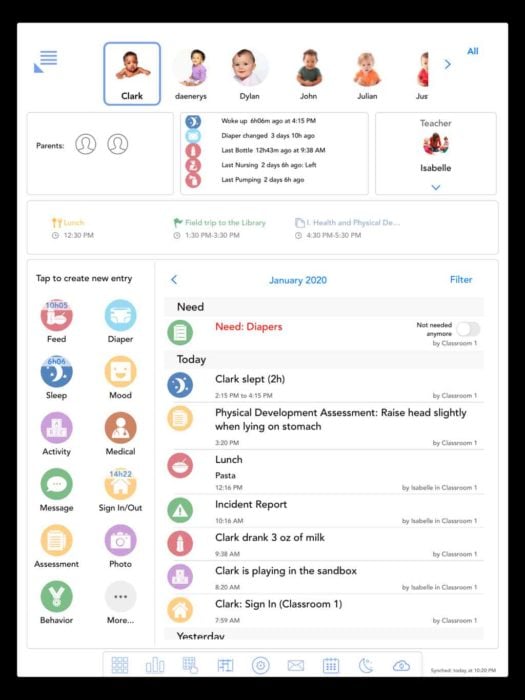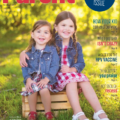How can you find the right child-care provider for your family? Start early. Ask questions. Check references. Pop in unexpectedly. And those are just for starters.
Whether you’re considering hiring a neighborhood babysitter for the occasional date night or a full-time daycare center for your return to work, finding the right child-care provider is an overwhelming endeavor — and likely one of the most important parenting decisions you’ll face.
After all, this is your child! Of course, you want to ensure his health and safety, above all, but also his happiness, emotional growth, enrichment, and development.
To make matters worse (or better, depending on how you look at it), there are just so many choices: private nanny, agency nanny, daycare, in-home daycare provider; not to mention variations within these sub groups — Montessori, attachment parenting by proxy and child-care co-ops.
Then there’s the cost. Minnesota is one of the most expensive child-care states in the nation, according to data released earlier this year by Child Care Aware America. In 2021, the average annual cost of daycare in Minnesota was $16,087. That’s more than the average annual cost of college tuition ($13,388) — and, yet, few parents have time to “save up” for such costs.
Start with a vision.
Laura Davis of College Nannies and Tutors — an agency with locations in Edina, Minneapolis, Minnetonka and Eden Prairie — said: “We have matched many hundreds of families with child care, and our starting point is always, ‘Tell me what you envision for your family.’ From there we know what suggestions to make. Starting with the vision can help a family narrow down options from family care to daycare to an in-home nanny — or in some cases a combination of many.”
Perhaps your vision is a bit murky. You don’t know what you want! Here are some things to consider: Your child’s personality: Extroverted or introverted? Easy going or spirited?
Work hours: The right place will fit your schedule, not the other way around.
Core values: Religion, discipline, nutrition. You and your care provider should share the same philosophies.
Once you start examining the basic needs of your particular family, the big choices will begin to narrow. For example, your high-energy child might become bored or restless at a small in-home practice with children who are much younger. On the flip side, you might not want your sensitive infant in a big, loud daycare center with a significant toddler or big-kid population.
Do your own vetting!
Once you decide what kind of child-care situation will best suit your family, put the finalists in your chosen category to the test! Ask tough questions, ask enrolled parents about the environment and make frequent visits.
DON’T be afraid to dig deeper.
Rebecca McLaughlin of Elko, a child-care expert with many years of experience as both a provider and director of a daycare, said: “Parents truly don’t have many concerns about placing their kids in daycare, and they should! They believe what they are told by caregivers. If a daycare center looks great or a home daycare seems clean and friendly, the parents tend to — in my opinion — make their choices too quickly based on the wrong factors.”
Seeing a need to help parents make an informed choice, McLaughlin teamed up with Rita Palashewski, owner and operator of Pumpkin Patch Childcare and Learning Center in Burnsville.
In December, they published Daycare Diaries: Unlocking the Secrets and Dispelling Myths Through True Stories of Daycare Experiences.
Said Palashewski: “The most important questions should be directed toward finding out more personal information about the individuals who will be providing direct care — why they chose to work with children, what they love about their job, what challenges they face daily, and how they handle discipline.”
Both McLaughlin and Palashewski stress the value of frequent unexpected visits, or “pop-ins.” This allows the parent to see what really goes on day to day and can either calm or confirm uneasy feelings.
This decision involves the wellbeing of your child and you have every right to see the child-care site beyond the “best foot forward” courtship phase.
“If your schedule doesn’t allow for this, make it allow for this,” Palashewski said, adding that all child-care facilities should have an open-door policy, allowing parents to visit the center at any time prior to and after enrolling the child.
At the end of the day, after the right questions have been asked and the pros and cons debated (see our sidebar on the previous page), you have to go with your gut feeling. Your intuition and instinct will not only serve you through the selection process but also in the continuing child-care relationship as well.
Trust those gut feelings, express your concerns, keep questioning, and keep popping in. Don’t be afraid to hover and fuss! Trusting another adult with the care of your child is a big deal.
WHAT TO ASK PROVIDERS
⊲⊲ Are there any other adults or older children on the premises besides caregivers?
⊲⊲ How can I contact you during the workday and how quickly should I expect a response?
⊲⊲ Do your own children receive care here? How do you handle that?
⊲⊲ What’s your very best quality as a child-care provider?
⊲⊲ What areas need improvement and what are your plans for making it happen?
⊲⊲ How long will you let my child cry?
⊲⊲ Can you show me where the children nap?
MUST-HAVE HELPFUL HINTS
⊲⊲ Newborn child-care is HARD to find. Spots are limited. Start the search during pregnancy!
⊲⊲ Nannies USUALLY cost a family more than group daycare environments. The exception to the rule? Twins! Double infant care in a center is significantly more expensive than nanny-care for two. A private nanny’s hourly rate will usually jump only a small amount for two young children.
⊲⊲ Do you have friends with kids in child care? Ask them FIRST. It’s a starting point, and if you find a friend who’s thrilled with her child-care choice, you have at least one solid recommendation to check out.
⊲⊲ Do you need only a few hours of care here and there? Some centers offer drop-in hourly child care for certain ages — a perfect fit for stay-at-home or work-at-home parents who need a day to run errands. KidsPark in St. Paul (kidsparkdropin.org) and ClubKid.
Jen Wittes lives in St. Paul and is a mother of two. She’s helped many Twin Cities families in her work as a postpartum doula.






















